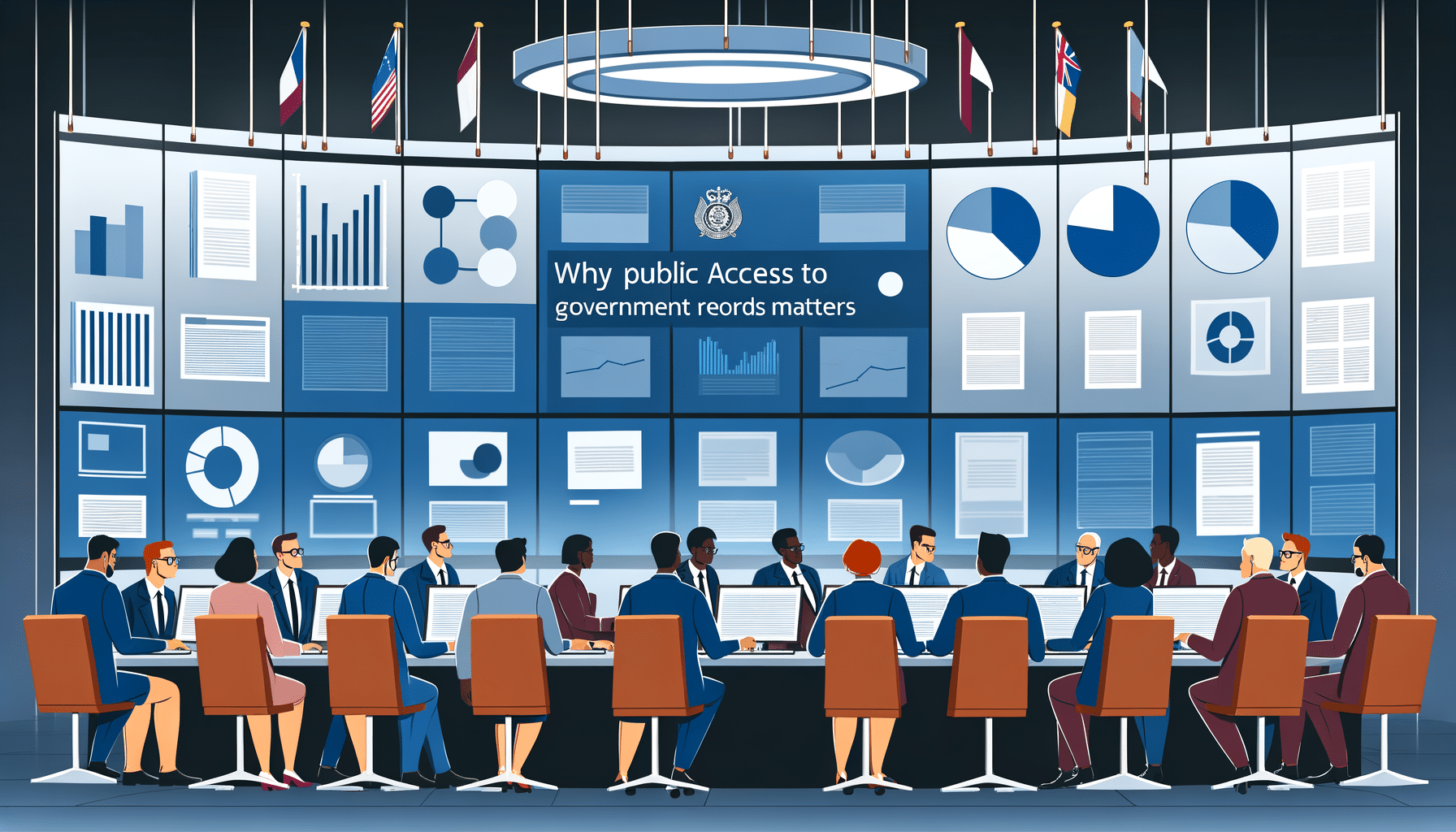- Open Government
- May 2, 2024
Why Public Access to Government Records Matters

Transforming Record Management: Why Public Access to Government Records Matters
Imagine you’re visiting a new city without a map. The location might be fascinating and ripe with opportunities, but without a guide, discovering its secrets would be challenging. The same principle applies to public access to government records. Granting access is like handing out a map—it empowers citizens, ensuring accountability and transparency in governance.
The Vital Role of Public Access
Public access can seem like a nebulous concept, yet it stands as a cornerstone of open governance. By allowing citizens to access government records, we galvanize a culture of accountability. This access drives community engagement and cultivates an environment where informed discussions can flourish. But how do we scale these ideas and transform them into practical reality?
As the founder of RecordsKeeper.AI, I’ve seen firsthand the transformative impact technology has on public records. Public access to government records doesn’t just create informed citizens; it establishes trust. It’s an invitation to the populace to scrutinize and evaluate government actions, fostering a robust democratic environment.
Benefits of Public Access to Government Records
Opening up government records isn’t merely an administrative duty; it’s about creating an ecosystem that supports transparency. Below are some of the pivotal advantages:
- Enhanced Accountability: When the public can access records, government agencies are motivated to maintain higher standards.
- Informed Citizens: With access to records, citizens are better equipped to make sound decisions and participate actively in civic processes.
- Reduced Corruption: Transparency through open records acts as a deterrent to unethical practices within public services.
- Improved Trust: A transparent government is one that its citizens can trust, strengthening the social contract.
Challenges in Providing Access
Despite its importance, establishing a system for public access to government records comes with its fair share of complications. From issues of privacy and data protection to the mammoth task of data organization, there’s much to consider. Balancing transparency with the protection of sensitive information remains a complex challenge.
Here, technology can be our ally. Solutions such as RecordsKeeper.AI modernize record management by automating the categorization and retrieval process while ensuring the data’s integrity and security, which is critical in maintaining a transparent yet secure record management system.
How RecordsKeeper.AI Facilitates Transparency
Incorporating AI and Blockchain into the management of public records, RecordsKeeper.AI makes the process seamless and efficient:
- Automated Categorization: AI-driven tools classify and tag records automatically, facilitating easy retrieval through intuitive queries.
- Secure Data Handling: Sensitive files are managed in secure data rooms with controlled access and real-time tracking.
- Immutable Records: Blockchain technology ensures the records’ integrity, creating tamper-proof documentation that stands up to scrutiny.
These features empower government agencies to navigate the complexities of public record management with precision and ease.
Moving Toward an Open Government
A step towards enhanced public access is a step towards open governance. This requires commitment not only from governmental bodies but also from technology partners. Integrating modern solutions into record management systems can streamline access, ensuring that transparency does not compromise efficiency or security.
While the journey towards a fully open government is an evolving process, the underlying principles remain unchanged. By optimizing record-keeping systems, we can overcome barriers to access and propel the initiative of an engaged citizenry forward.
Looking Ahead
Public access to government records stands as a pillar of modern democracy. As we navigate the digital age, the role of technology in enhancing this access becomes more apparent. By utilizing platforms like RecordsKeeper.AI, we can advance towards greater transparency, accountability, and an informed public.
In conclusion, reforming how government records are accessed and managed is not just about policy changes; it’s about cultural transformation. It’s about making governance accessible, understandable, and trustworthy. Join me on this journey to empower citizens, uplift communities, and redefine government transparency.
For more insights into the transformative power of technology in record management, follow my journey as we continue to innovate and impact the future of governance.
Toshendra Sharma is the visionary founder and CEO of RecordsKeeper.AI, spearheading the fusion of AI and blockchain to redefine enterprise record management. With a groundbreaking approach to solving complex business challenges, Toshendra combines deep expertise in blockchain and artificial intelligence with an acute understanding of enterprise compliance and security needs.
Archives
- December 2024
- November 2024
- October 2024
- September 2024
- August 2024
- July 2024
- June 2024
- May 2024
- April 2024
- March 2024
- February 2024
- January 2024
- December 2023
- November 2023
- October 2023
- September 2023
- August 2023
- July 2023
- June 2023
- May 2023
- April 2023
- March 2023
- February 2023
- January 2023
- December 2022
- November 2022
- October 2022
- September 2022
- March 2019
Want to get more content like this?
Signup to directly get this type of content to your inbox!!
Latest Post
Organizing External Auditor Access
- December 22, 2024
Document Control in Manufacturing Plants
- December 21, 2024
Handling Rush Financial Report Requests
- December 20, 2024
Managing Record Access After Staff Changes
- December 19, 2024





